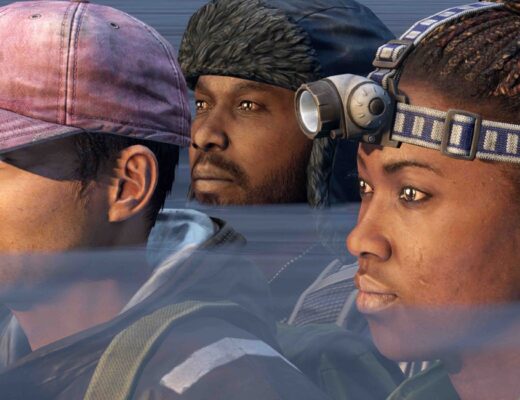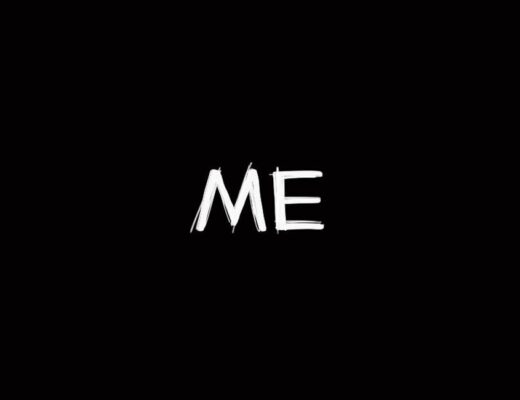To the uninitiated, written descriptions of Radu Jude’s cinema might give the wrong impression of his films as dizzyingly dialectical exercises requiring a complete working knowledge of the last century of Romanian politics, 20th-century philosophers and artists, and, perhaps, a good deal of patience. While it’s true that Jude’s films are dense with information, obsessed with the impact of shoddy historical memory on the present, and sometimes use a collage of images pulled from different sources in place of conventional narrative, they are also fun, filled with filthy humor, and, at their discursive best, invigorating. And though familiarity with Jude’s cultural and historical touchstones would be a bonus, the films contextualize and extrapolate the referenced ideas enough to be accessible to anyone with an interest. As the lead character in “I Do Not Care If We Go Down in History as Barbarians” puts it, “We have no right to be subtle.”
That his last feature, Bad Luck Banging or Loony Porn is his most popular film — at least going by Letterboxd, where it sports 20,000 more viewers than his next most popular title — has more to do with its upfront concern with sex, a boon to both perceived approachability and distribution prospects, than its Berlinale prize. This new film, Do Not Expect Too Much From the End of the World, is not lucky enough to boast such exciting subject matter, but it is the better film and more approachable still, given that it doesn’t give a third of its runtime over to a video essay covering seemingly… everything.
The film stars Ilinca Manolache as Angela, a production assistant (and Uber driver!) currently working on a corporate video about workplace safety. She is constantly at work, for upwards of 16 hours a day, struggling to stay awake as she drives around the city, primarily to conduct interviews in service of an obviously unethical goal: getting injured workers to admit on camera that their injury was their own fault, shifting blame from negligent employers to their overworked employees. She stops, often, to record Instagram reels in character as an Andrew Tate parody, complete with a ridiculous facial filter, providing extreme caricature through absolutely filthy, hilarious monologues — it’s doubtful the subtitles of any other film this year will reference “sluts” quite this much. These breaks from the mundanity of her day job are necessary for both her sanity and the film’s rhythms, punctuating possible lulls with bursts of vulgarity. Other entertaining diversions include a funny cameo by Uwe Boll playing himself and the appearance of Angela’s foreign boss, a marketing executive and the great-great-granddaughter of Goethe played by Nina Hoss, first as a disembodied head on a Zoom call and then as a passenger in Angela’s car. They each represented foreign productions and, more broadly, continuing and damaging, at least in Hoss’ case, foreign exploitation in Romania, one of the characteristically many things on Jude’s mind.
Intercut with Angela’s day is footage of the 1981 Romanian film Angela Moves On, another movie about a woman, this time a taxi driver, at work. The interplay between Jude’s new film and this old one is the movie’s main imagistic conceit, as Jude uses an existing film to not only supplement his constructed narrative, but to interact with it in surprising ways. In its simplest form, this textual conversation might mirror the misogyny faced by both Angelas or play out a similar scenario twice, like another driver blaring their horn because Anglea is driving too slowly. However, Jude does not simply present passages from Angela, but routinely changes them, slowing down the footage and zooming in to highlight background details. Oddly for a filmmaker so often dedicated to saying what he means, it’s not always clear what each instance of this technique is meant to highlight, though some shots, like one of a bread line, are much more obvious. But what is clear among the many glaring faces of passersby frozen in close-up is Jude’s larger project to uncover the documentary elements of this fiction film — all films document something of the reality in which they are filmed — to blur the lines and collapse the barriers between image forms.
In its last half-hour, the concerns of Do Not Expect Too Much From the End of the World coalesce and make themselves perfectly clear in a long, single take, the production staging their interview. As Jude uses a fiction film to clarify and complement reality, the producers of the video distort reality, going to increasingly absurd lengths to make their subject say exactly what they want to his own detriment. With a crewmember talking about the Lumiere brothers offscreen and Angela recording one of her parody videos in the background, Jude builds toward a thesis on the construction of images — films, filtered Instagram videos, laughably unreal Zoom backgrounds — as distortions of reality that dictate life in the 21st century. The apocalypse referred to by the title is one in which these manipulations of reality have become endemic to that same reality, arguably having more to do with modern life than actually living it. Angela’s reality is black and white, but the fictions of Angela Moves On, these Instagram videos, and the final interview are all presented in color. Image-makers have created a world that is in effect post-truth, continually benefiting those in positions of power who manufacture these images. This applies to old media forms like cinema as much as it does the new; for as many references to films are contained within this and other Jude works, his oeuvre is much too skeptical of the whole program to be labeled cinephilic. We are still mired in the labor concerns of the last century, as power changes hands and the ideologies of society’s loudest shift, workers are still suffocated by long hours, exploited by their employers, and now subject to the indignities of the gig economy. Expect too much from the end of the world and you’ll be sorely disappointed.
DIRECTOR: Radu Jude; CAST: Ilinca Manolache, Nina Hoss, Ovidiu Pîrsan, Dorina Lazăr; DISTRIBUTOR: Mubi; IN THEATERS: March 22; RUNTIME: 2 hr. 43 min.
Originally published as part of Locarno Film Festival 2023 — Dispatch 1.







